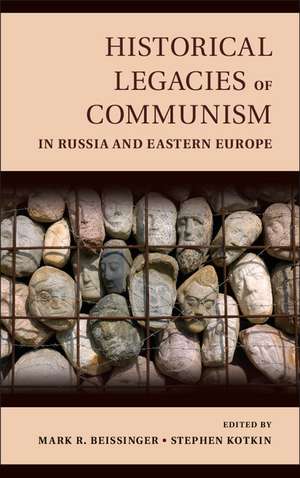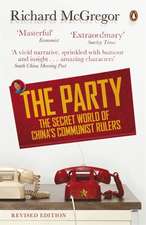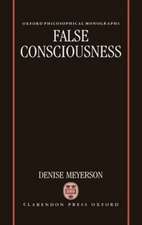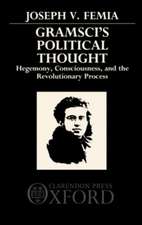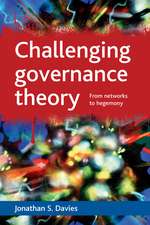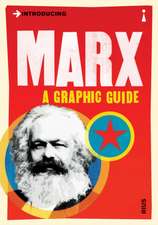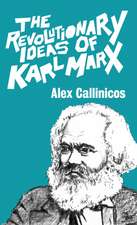Historical Legacies of Communism in Russia and Eastern Europe
Editat de Mark Beissinger, Stephen Kotkinen Limba Engleză Hardback – 6 iul 2014
Preț: 691.66 lei
Preț vechi: 777.15 lei
-11% Nou
Puncte Express: 1037
Preț estimativ în valută:
132.36€ • 137.41$ • 110.37£
132.36€ • 137.41$ • 110.37£
Carte tipărită la comandă
Livrare economică 24 martie-07 aprilie
Preluare comenzi: 021 569.72.76
Specificații
ISBN-13: 9781107054172
ISBN-10: 1107054176
Pagini: 258
Ilustrații: 7 b/w illus. 25 tables
Dimensiuni: 152 x 229 x 16 mm
Greutate: 0.45 kg
Ediția:New.
Editura: Cambridge University Press
Colecția Cambridge University Press
Locul publicării:New York, United States
ISBN-10: 1107054176
Pagini: 258
Ilustrații: 7 b/w illus. 25 tables
Dimensiuni: 152 x 229 x 16 mm
Greutate: 0.45 kg
Ediția:New.
Editura: Cambridge University Press
Colecția Cambridge University Press
Locul publicării:New York, United States
Cuprins
1. The historical legacies of communism: an empirical agenda Stephen Kotkin and Mark R. Beissinger; 2. Communist development and the post-communist democratic deficit Grigore Pop-Eleches; 3. Room for error: the economic legacy of Soviet spatial misallocation Clifford G. Gaddy; 4. Legacies of industrialization and paths of transnational integration after Socialism Béla Greskovits; 5. The limits of legacies: property rights in Russian energy Timothy Frye; 6. Legacies and departures in the Russian state executive Eugene Huskey; 7. From police state to police state? Legacies and law enforcement in Russia Brian D. Taylor; 8. How judges arrest and acquit: Soviet legacies in post-communist criminal justice Alexei Trochev; 9. Historical roots of religious influence on post-communist democratic politics Anna Grzymala-Busse; 10. Soviet nationalities policies and the discrepancy between ethnocultural identification and language practice in Ukraine Volodymyr Kulyk; 11. Pokazukha and cardiologist Khrenov: Soviet legacies, legacy theater, and a usable past Jessica Pisano.
Recenzii
'In the aftermath of revolutionary change, whether after the French revolution or the collapse of communism in the Soviet Union and Eastern Europe, scholars have invariably launched heated debates about whether the new order is indeed new or if it demonstrates some continuities with the past. In sharp and welcome contrast to these usually ambling discussions, this edited volume takes a rigorous approach to the assessment of historical legacies by defining the term in a precise way that makes the phenomenon both testable and falsifiable and by identifying factors and mechanisms that account for when, where, how, and to what extent such legacies have shaped the institutions and practices of post-communist Europe and Eurasia.' Valerie Bunce, Aaron Binenkorb Professor of International Studies and Professor of Government, Cornell University
'A quarter-century after the fall of the Berlin Wall, the nature and the very existence of legacies of Soviet-type communism continue to evoke lively, and thus far inconclusive, debate among scholars. Mark Beissinger and Stephen Kotkin have moved the debate forward in this book by putting together a collection of original essays on particular thematic areas, all of them addressing multiple post-communist states. The chapters are richly researched, elegantly written, and framed through an impressive variety of theoretical lenses.' Timothy J. Colton, Professor and Chair, Department of Government, Harvard University
'Since the demise of the 'transition paradigm', the study of post-communist transformations has taken a decisively historical turn. With this splendid collection of essays … our understanding of historical factors shaping the regime transformations and their outcomes across the post-communist world took a large stride forward. The editors have assembled a stellar cast of scholars and experts on the region and produced an analytically coherent and empirically rich account of the role communist legacies play in various countries and institutional domains. This collection adds much-needed analytical precision to research on historical legacies and advances our knowledge of how history in general and communist experience in particular matter to current political and economic outcomes in the region. This book is a must-read for those who are interested in the origin of institutions and policies and in the cross-national variation of regime change outcomes.' Grzegorz Ekiert, Director, Minda de Gunzburg Center for European Studies and Professor of Government, Harvard University
'Mark R. Beissinger and Stephen Kotkin have assembled a who's-who of scholars on Eastern Europe and Eurasia, many of whom made their careers in the era after the end of communist rule. The authors are therefore particularly adept at separating 'historical legacies' from plain history - examining the precise ways in which the habits of the past may (and may not) matter in such diverse areas as policing, property rights, and economic performance. This book reminds us why edited volumes - carefully crafted around a common theme - are still indispensable vehicles of scholarly communication.' Charles King, Georgetown University, author of Extreme Politics: Nationalism, Violence, and the End of Eastern Europe
'Total system state socialism is gone, but polities across Eurasia continue to contend with Leninist legacies. And no wonder: state socialism was an earth-changing experiment in social engineering. Historical Legacies of Communism in Russia and Eastern Europe takes careful stock of how these legacies matter (and, alternatively, how they fade from significance). Representing the best of historically informed social science, this book is conceptually innovative, empirically grounded, contextually sensitive, and intellectually provocative. Its wide range of cases invites serious thinking about how the socialist period will continue to shape our world.' Edward Schatz, University of Toronto
'With Historical Legacies of Communism in Russia and Eastern Europe, a leading political scientist (Mark Beissinger) and a top historian (Stephen Kotkin) bring together an all-star group of academics to help crystallize a growing research agenda on historical legacies in countries that have made transitions from communist regimes … this is an important volume that will likely leave an important scholarly legacy of its own.' Henry E. Hale, Slavic Review
'This volume is a must-read for anyone interested in the topic of post-Communist transitions in particular, and of transitions from authoritarian rule in general. While this work will mostly appeal to scholars and graduate students, the essays are written in such a way that they are accessible to advanced undergraduates as well.' Christopher Marsh, The Russian Review
'A quarter-century after the fall of the Berlin Wall, the nature and the very existence of legacies of Soviet-type communism continue to evoke lively, and thus far inconclusive, debate among scholars. Mark Beissinger and Stephen Kotkin have moved the debate forward in this book by putting together a collection of original essays on particular thematic areas, all of them addressing multiple post-communist states. The chapters are richly researched, elegantly written, and framed through an impressive variety of theoretical lenses.' Timothy J. Colton, Professor and Chair, Department of Government, Harvard University
'Since the demise of the 'transition paradigm', the study of post-communist transformations has taken a decisively historical turn. With this splendid collection of essays … our understanding of historical factors shaping the regime transformations and their outcomes across the post-communist world took a large stride forward. The editors have assembled a stellar cast of scholars and experts on the region and produced an analytically coherent and empirically rich account of the role communist legacies play in various countries and institutional domains. This collection adds much-needed analytical precision to research on historical legacies and advances our knowledge of how history in general and communist experience in particular matter to current political and economic outcomes in the region. This book is a must-read for those who are interested in the origin of institutions and policies and in the cross-national variation of regime change outcomes.' Grzegorz Ekiert, Director, Minda de Gunzburg Center for European Studies and Professor of Government, Harvard University
'Mark R. Beissinger and Stephen Kotkin have assembled a who's-who of scholars on Eastern Europe and Eurasia, many of whom made their careers in the era after the end of communist rule. The authors are therefore particularly adept at separating 'historical legacies' from plain history - examining the precise ways in which the habits of the past may (and may not) matter in such diverse areas as policing, property rights, and economic performance. This book reminds us why edited volumes - carefully crafted around a common theme - are still indispensable vehicles of scholarly communication.' Charles King, Georgetown University, author of Extreme Politics: Nationalism, Violence, and the End of Eastern Europe
'Total system state socialism is gone, but polities across Eurasia continue to contend with Leninist legacies. And no wonder: state socialism was an earth-changing experiment in social engineering. Historical Legacies of Communism in Russia and Eastern Europe takes careful stock of how these legacies matter (and, alternatively, how they fade from significance). Representing the best of historically informed social science, this book is conceptually innovative, empirically grounded, contextually sensitive, and intellectually provocative. Its wide range of cases invites serious thinking about how the socialist period will continue to shape our world.' Edward Schatz, University of Toronto
'With Historical Legacies of Communism in Russia and Eastern Europe, a leading political scientist (Mark Beissinger) and a top historian (Stephen Kotkin) bring together an all-star group of academics to help crystallize a growing research agenda on historical legacies in countries that have made transitions from communist regimes … this is an important volume that will likely leave an important scholarly legacy of its own.' Henry E. Hale, Slavic Review
'This volume is a must-read for anyone interested in the topic of post-Communist transitions in particular, and of transitions from authoritarian rule in general. While this work will mostly appeal to scholars and graduate students, the essays are written in such a way that they are accessible to advanced undergraduates as well.' Christopher Marsh, The Russian Review
Descriere
This book elaborates an empirical approach to the study of historical legacies of communism, revolving around relationships and mechanisms rather than correlation and outward similarities.
